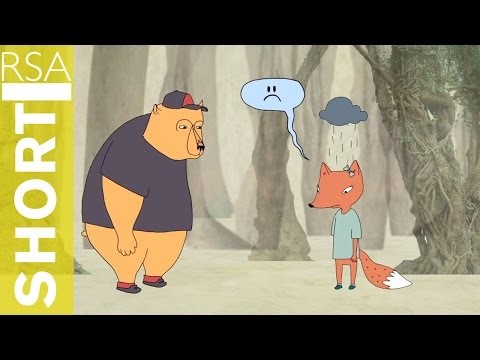Man overboard! Do you throw a rope or jump in?
The one attribute too often missing, and the one that drives connection, communication and effective leadership, is empathy. Dr Jenny Brockis explains how empathy is different from sympathy and how we can cultivate it.
To survive and flourish in today’s crazy busy world, leaders are required to have certain attributes. We talk about having sufficient drive, tenacity and commitment as well as continuing adaptability and curiosity.
All very admirable, desirable and achievable.
But it’s not enough.
The one attribute too often missing-in-action, and what really drives connection, communication and effective leadership is empathy.
Empathy as distinguished from sympathy is our ability to understand what is going on in another person’s world. It enables us to take on another’s perspective.
It drives human connection.
It matters because a lack of empathy leads to a lack of relatedness. Why would you listen to me, if you don’t think I understand where you are coming from or that we share common values or beliefs?
It’s very different from feeling sorry for another’s predicament, which is sympathy.
“I’m so sorry for your loss.”
“I’m sorry to hear you lost your job.”
“I’m sorry you didn’t make the team.”
Whilst we may be sorry, we are however disconnected from the human emotions that the other person may be experiencing.
An empathetic response acknowledges those emotions and recognise how it would make us feel.
“I know you were very close to your father – it must be hard not having him around anymore.”
“I can’t begin to imagine what you’re going through right now, please know I am here to support you in any way I can during this difficult time.”
“It must be really tough after having put in so much time and effort to make the grade.”
As a leader, manager or business owner, being empathetic demonstrates that you care about the wellbeing of those who work for you or with you, and that you will stand by them at those times when things go pear-shaped. It drives a workplace culture where care and compassion are seen to matter.
Brené Brown makes the distinction between empathy and sympathy in a short video.

The problem with finding empathy is twofold.
It can get overlooked in our rush to meet deadlines and profit margins.
It gets depleted in the face of fatigue and stress.
Even the most empathetic person on the planet will struggle to empathise with another person’s plight when feeling exhausted or under pressure to deliver. It’s just the way our brain is set up. Increased stress levels sap our ability to tap into our conscious awareness of what is happening around us. As our field of vision narrows our capacity to care about others is diminished.
That’s why knowing how to enhance our own level of empathy is critical. Empathy fosters empathy and it starts with making the conscious choice to look out for someone else. Reciprocity works.
Whilst we teach our kids to give up their seat on the bus for an older person or a young mother with a baby as good manners, our drive to care about others is evident from a very early age.
Warneken and Tomasello from the Max Plank Institute demonstrated how even a two year old will respond to assist an adult they see requires help.

Simon Sinek in his book Leaders Eat Last states, “true leadership is about empowering others to achieve things they didn’t think were possible.”
“Exceptional organisations prioritise the well-being of their people and in return, their people give everything they’ve got to protect and advance the well-being of one another and the organisation.”
Building empathy starts by
1. Looking Up.
It’s about making the conscious choice to be more aware of when someone needs our help. In our gadget driven world we are often “heads down”, looking at our mobile phone or other screen, and we simply don’t notice the world around us.
2. Connecting with purpose.
A cheery hello with a smile costs nothing and is an instant connector. Holding the door open for someone carrying a heavy load, shouting a friend a coffee, asking “how are you?” are small but not insignificant ways of showing you care.
3. Practicing mindfulness.
While mindfulness may appear to be about self care and stress reduction, it also builds greater awareness of our surroundings, enhances acceptance and reduces judgment of ourselves and others.
4. Continuing to learn.
The problem is we often “know” too much, which shuts down our ability to question our own emotional responses in a given situation. For example recognising your frustration at a colleague’s apparent lack of commitment to a project allows you to question what you can learn from your own emotional response. If we become better at reading our own emotions, it helps us to become more adept at reading the emotions of others.
Last but not least, empathy may not be restricted just to humans. You might be surprised to know that even a rat will forsake a nice piece of chocolate to save a drowning companion. A Japanese study showed how rats would seek to assist a companion to dry land in preference to obtaining a nice sweet treat (most of the time) first. Who said you should never trust a rat?
Providing a helping hand isn’t just good manners, it’s part of what binds us together as humans. Empathetic leaders are exceptional because they demonstrate their understanding of the power of human connection.
This article first appeared on Jenny’s website and is republished with her kind permission.
Dr. Jenny Brockis is a medical practitioner and thought leader specialising in cognitive health and high-performance thinking. Dr. Jenny works with business leaders and professionals to boost productivity and performance in all brains at work. She is the best selling author of Future Brain (Wiley). For more information email jenny@drjennybrockis.com or visit www.drjennybrockis.com












Max Thomas
July 20, 2016 at 7:54 am
Empathy, without going overboard.
A pleasure to read your thoughtful and clear piece Jenny. It's ironic that empathy is evidently declining with the rise of 'social' media. On closer examination, however, we observe that narcissism is nourished by the "heads down" view which is perhaps self-affirming and 'safe' but nonetheless illusory. It's not uncommon to see young people 'communicating' electronically while sitting together on a train or other public place. Acknowledgement is a form of empathy which can also be a strong unifying force and motivator. But it's surprising that so many people, including managers, seem reluctant to give due credit. As you say, people are naturally inclined to act altruistically and sometimes money just gets in the way. I was robbed in a non-English-speaking country a few years ago and a stranger gave me some wonderful help and support. It would have been insulting to offer him a reward. Instead, I promised him that I would take opportunities to help strangers on his behalf. He was delighted with that and I have tried not to let him down. A good rhetorical question deserves a reciprocal answer.